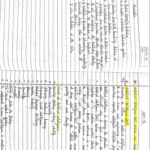A SEMINAR ON
SELECTION
AND
CERTIFICATION
PREPARED BY:OF VENDGOUIDERD BSY:
Dr
SWATHI M NAMBIAR . JIGNESH SHAH
A Q
1 ROLL NO.2 SSISTANT PROFESSOR
A DEPARTMENT
PMRA
1
L.J INSTITUTE OF PHARMACY
DEFINITIONS
2
VENDOR:
Vendor or Supplier is the seller of the API to
manufacturer of finished dosage form.
SELECTION OF VENDOR:
It is the process where by the vendor is approved by
the finished dosage form manufacturer for given API
that will be used in specific product.
3
CERTIFICATION OF VENDOR:
It is the process by which the vendor is classified by
finished dosage form manufacturer relative to its
creditability and the degree of testing required to be
performed by finished dosage form manufacturer for the receipt
of each lot of the API.
4
VENDOR
SELECTION
AND
CERTIFICATION
5
PURPOSE OF VENDOR QUALIFICATION
AND CERTIFICATION
6
The two major aspects for this:
1) TO COMPLY WITH GMP
REGULATIONS:
FDA Guidelines (1990,1993,1994,1998B)
ICH Guidelines(ICH 1998)
BPC Monograph (IQA 1992)
2) BUSINESS PROSPECTIVE:
For the final product validation it is necessary to
certify raw material.
Certificate is given by certified vendor.
7
TYPES OF VENDOR
8
1) Category A vendor:
-performs all tests listed in the dosage form
manufacturer’s material specification are performed by
the vendor’s laboratory.
2) Category B vendor:
-they are not performing all the test
-all tests are performed but there is not agreement
between manufacturer’s laboratory and CofAs.
9
3) Category C Vendor:
– Undergoing qualification process where the
manufacturer has to perform all the tests.
110
0
SELECTION OF VENDORS
11
BASED ON THE FOLLOWING
1) Consider that manufacturer is new to the company or
not.
2) Determine that API is new or second source.
3) Evaluate the vendor’s reputation:
Checking the FDA Inspection Profiles or
Establishment Inspection Report.
Relationship with other Company
Vendor’s Recall and failure History
12
CONTINUED…
4) Define the vendor’s operation, as discussed
previously. In order to qualify a vendor properly, it
is imperative to know if the vendor is manufacturer&,
in this proposed program, we must “qualify each
manufacturing process.
5) CAPACITY OF VENDOR:
Supply the quantity in required amount and in
required time. It is wasteful to qualify a vendor if he is not
fulfilling requirement in given time.
13
CONTINUED…
6) LOCATION OF VENDOR:
Providing supply in regular production schedule.
In sudden increase in demand local suppliers easily supply the API.
Foreign manufacturer maintain inventories in local area .
7) SELLING PRICE API: Necessary for profit evaluation.
8) TECHNICAL EVALUATION:
Three lots from API manufacturer are taken for testing
14
CONTINUED….
9) Request for technical dossier from API manufacturer
validated test methods
impurities data
standards for testing
chromatogram
stability data on marketed container-
This data helps in final product specification
10) Test the production samples received in laboratory.
11) Vendor audit carried out by manufacturer
all operation of supplier
15
CONTINUED…
12) Produce a qualification lot of finished dosage form
product using API
The resultant data are taken for review and decision
making.
If API is second source it is it is taken for comparison
with regular lot.
13)Final Report : It is made on following data
• vendor’s background information
• audit report
• laboratory findings
• regulatory affairs 116
6
CONTINUED…
14) Emphasizing a change control:
• SOPs are prepared for the change in document given
by the supplier.
• revalidation
17
MONITORING OF VENDORS
18
– SOPs are made for this purpose.
– Retesting program has been established.
– Out of specification result reported then
investigation is carried out and report has been
written.
– If it is confirmed then qualification of vendor is
cancelled
19
DECERTIFICATION:
Any failure by the supplier for meeting the customer’s
requirement may lead to the decertification.
OFFICIAL DECERTIFICATION:
OCJS : Ohio Office of Criminal Justice Services
1. If the error rate of materials is higher than 4% then
OCJS provides notice and get technical support. From
the date of E-mail received we get 12 months time and
within 2 months we have to correct the error and
it will not get decertified.
2. Within 4 months we have to submit data with error
less than 4%, if the material error rate is higher
than 4% OCJS will again give the notice. 220
0
3. Error of 4% cannot be submitted more than 3 times in a
year otherwise OCJS decertifies the vendors certificate.
4. For IBR :
Once the director signs the decertification certificate that
vendor will be decertified in Ohio for IBR. And vendor
gets decertification notice.
21
VENDORS AUDIT
22
There are many elements in an audit that is conducted by
a dosage form manufacturer or regulatory agency of the
facility that manufactures an API.
The person conducting the audit may want to use a
checklist developed for this purpose for two
main reasons:
1)The checklist will include all areas of the audit to
be covered so that nothing will be forgotten.
2)Boxes on the checklist can be marked, with brief
comments that can be added by the auditor, obviating the
need for much time spent writing,& allowing for
more time to be spent observing the facility &
asking plant personnel questions in a dialogue box.
223
3
cGMP NDN D N/A COMMENTS
observation
DOCUMENT ATION
SOP MANUAL
QA/QC PROGRAME
PERSONAL TRAINING
MASTER
RECORDS
REWORK
FAILURE INSPECTIO N
24
Figure.1 vendors audit documentation
2
4
REFERENCES
▪ GMP for Pharmaceuticals, A Plan for total quality
control, Sidney H. Willing, James R. Stoker, 4th edition ,
Marcel decker Inc. Page no. 89-93
▪ http://cdsco.nic.in/html/GMP/SCHEDULEM(GMP).pdf
25
71 71
A Long-Term Commitment between two or more organization for achieving
specific business goals is called partnering.
V Partneri V
I I
J ng J
A A
Y Y
N Goals are achieved by maximizing the effectiveness of resources of each N
I member. I
C C
O will result in improved quality, continuous O
L improvement of processes and products, low cost, and L
E E
Partnering is based on Common Goals and Trust on each other
increased productivity.
26 August 10, 71
2017
72 72
The three key elements of partnering are
V V
I I
J Long-term commitment J
A A
Y Trust Y
N N
Common vision
I I
C C
O O
L L
E E
27 August 10, 72
2017
73 73
Sourcing is the process of identifying the suppliers for the items required by
an Organization.
V Sourcing V
I I
J J
A A
Y Y
N The three types of Sourcing in practice are N
I I
C C
Sole Sourcing
O O
L Multiple Sourcing L
E E
Single Sourcing
28 August 10, 73
2017
74 74
Supplier
V
How to decide on Make or Buy Selection V
I I
J J
A A
How critical is the item to the final product/service.
Y Y
N Is it possible to produce the item internally? Do we have technology to N
I produce it? If not, can we develop it? I
C C
Are there any specialized suppliers for the item? Or can we develop such a
O supplier? O
L L
E E
29 August 10, 74
2017
75 75
Points to be considered while evaluating the Suppliers
V The supplier’s ability to understand the management philosophy of the organization. V
I The supplier’s management system and its readiness to incorporate the Quality Management Systems I
J (ISO/QS 9000) accepted worldwide. J
A The technical expertise available now and the ability to cope up with the future technical requirements. A
Y Y
The supplier’s ability to consistently supply the raw materials that meet the specifications of the
N N
purchaser.
I I
C The supplier’s ability to meet the demand and ability to increase the volume of production when C
demanded.
O O
L The credibility of the supplier in maintaining the corporate secrets. L
E System of delivery and communication systems supplier available with the track E
record of the supplier with the company.
30 August 10, 75
2017
76 76
Supplier Rating
Supplier rating is the process of categorizing the suppliers on the basis of
quality, prompt delivery, and service.
A successful supplier rating system requires the following J
Supplier rating enables the company to obtain an overall rating of the s u supplier
performance system to implement and sustain the rating program. N
•It ensures complete communication with customers on all the key I
areaaas
continuous review process. C
O
L
• Common performance matrices for all the supplier enhance the customer E
supplier relationship by providing objective feedback of the supplier’s
performance.
It provides the suppliers with a factual record of mistakes, so that
31 the suppliers can eliminate them in the future August 10, 76
2017
77 77
Supplier rating system – Scorecard
V V
Supplier Performance characteristics
I I
Quality (40 Prompt delivery Communicatio n Product Total
J Marks) (20 Marks) system Technology (20 (100Marks) J
effectiveness (20 Marks)










